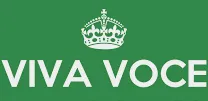Q: When in a common law land, what happens when someone writes a notice like this?
A: MASKS ARE QUIET. Instantly silenced because they are pulverized into the realm of man, where the highest law of the land is heard. Common LORE is the law of the land, the folk-LORE of that particular community, mans' spoken word of right and wrong. The King and the People are One, the People and the land are one.
This is not the law of the sea where citizen-ships are lost and wander where to DOCK[ett]. This is not the deck of a boat made from DEAD TREES where a DEAD mask called a Plaintiff (dead complainer) can MOVE a case against a PERSON who is DEAD. No more 2 dimensional FICTIONS where man did obtain the ATTORNment and did play silly games with Papers from a DEAD TREE.
Who are you?
If you know who, then you know your standing.
(CLICK 2X to see FULL SIZE! ;-)


Text of picture lesson:
notice
i, man, require a court of record where the magistrate is independent of the tribunal and said court moves under the common law.
i require a verifiable claim that i did cause harm, that i owe a debt, that i did wrong.
When a man requires this type of court by use of pen and paper (for instance at an “arraignment”) the man evokes the common law. NO statutes,codes, or acts apply...no fictions/masks/persons/titles are allowed to be heard. 2 dimensions cannot be heard in common law courts of record, and likewise, 3 dimensions cannot be heard in civil or legal proceedings.
Verifiable means a man or woman has to swear in open court they were harmed. They must speak in open court their claim, using their own vocal Chords (re-Chord).
(see: 7th amendment US Constitution to show you are guaranteed the government is under contract to provide you with this type of court when requested)
Also see: Trinsey v. Pagliaro, a witness must speak against you, NO lawyers speak!
The 4 elements of a common law court of record:
1. power to fine or imprison for contempt
2. keeps a record of the proceedings
3. proceeding according to the common law (not statutes or codes)
4. the tribunal is independent of the magistrate (judge)*
5. generally has a seal (optional)
Note that a judge is a magistrate and is not the tribunal.
The tribunal is either the sovereign himself, or a fully
empowered jury (not paid by the government)
*(the judge is a witness only he doesn’t “judge” anything)
thank you Bill Thornton for the 4 elements list ;-)

